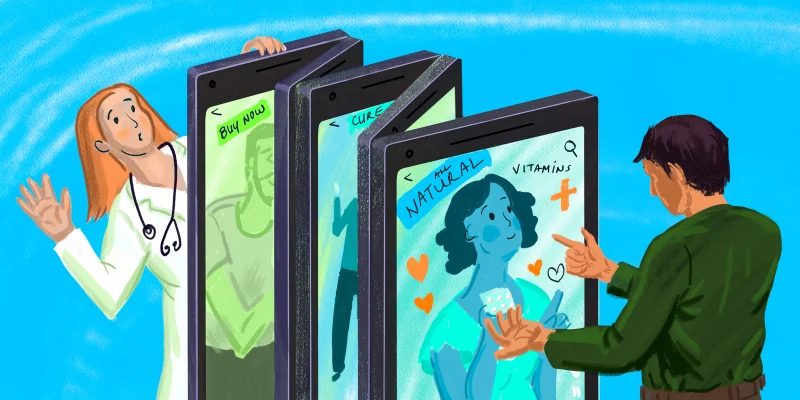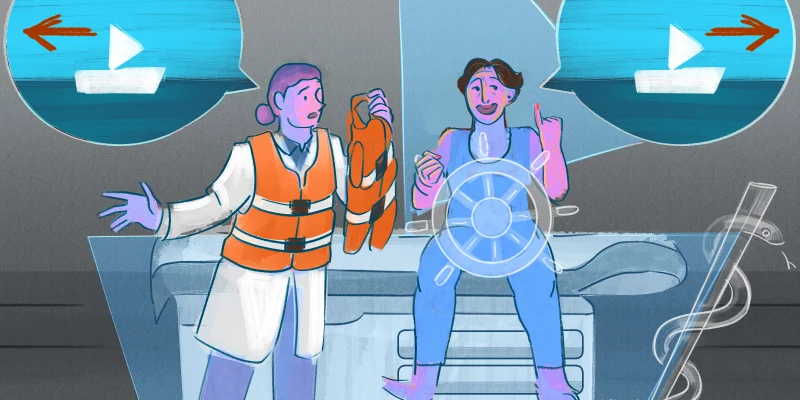
I knew I wanted to be a doctor ever since I was old enough to understand what the term really meant. Consequently, I also figured out early in life the world’s perception of a good physician. A vibrant, wide-smiled personality who lit up the patient’s heart upon entering the room. A person who can make joyful conversations and cure patients with medicine, but also with words and warmth. I was told by friends and family to incorporate those traits in my personality if I wanted to prove myself as a good physician.
Medical school was mostly spent devouring books. I was studying hard and my grades were reflective of my endeavors. I was not expected, or told, to have a charming personality. In my mind, and to the world, I was succeeding as a doctor, and my future was bright.
Slowly, I transitioned into the real world of becoming a doctor. I began to realize, to my dismay, that I did not possess all the charming traits that I thought were essential to become a good doctor. I did not have the most excellent sense of humor. I was often shy around new people. I found it difficult to engage in small talk and dreaded social gatherings. And most importantly, I did not light up a patients’ room when I walked in. I was, perhaps, an introvert or just shy of social norms.
How did that translate for me in real life? I struggled. I worked hard to take care of my patients. I often managed to have deeper, meaningful conversations inside patient rooms. It was a safe space where I had the wonderful opportunity to help someone, and I often felt at ease. But when leaving the room, I wondered if I was even making the slightest impact in brightening their day. With colleagues, I tried my best to be friendly and courteous. I tried to incorporate witty and lively social skills into my personality. But, all of it took so much effort.
I often wonder if I am perceived as arrogant, unengaged, or underconfident by people around me — always a setback in my struggle. Often in medicine, extroverted people are perceived as better physicians, as they can connect better with their patients and more likely to advance professionally. Introverts are often judged based on personality and social skills, rather than intelligence, as they often struggle to be assertive in conversations.
The question that is often asked is, can only extroverts thrive in medicine? The answer is not black and white. While there are certain disadvantages to being an introvert, including society’s bias, there are many positive traits that are often overlooked. Many introverts do not realize their numerous strengths, including compassion, empathy, a deep thought process, and groundedness — all essential qualities of being a physician. They often undermine themselves and forget that empathy and compassion not only reflect through an outgoing demeanor, but can shine through simple gestures. And being an introvert does not technically translate into having poor interpersonal communication skills. In the book “Quiet,” the author states that introverts are often undervalued and misunderstood. And they have much more depth to their personality then what comes across.
There is no doubt that being an introvert in medicine can be tough, but it does not mean that you can’t succeed. And so, I make a conscious effort to smile at people in the hallway and introduce myself. But, I also remind myself not to forget the long hours I spend in my office, alone, thinking about my patients. And while I often wish I was that charming, witty doctor, my patients remind me that just a smile matters too.
Saba Fatima, MD, originally hails from Karachi, Pakistan and is currently training as a pediatrics resident in Philly. She has a passion for children and writing, and she hopes for a world where no child has to die because they can’t afford to live. She was a 2018 Doximity Scholar. She tweets @SabaFatimaAli and blogs here.







